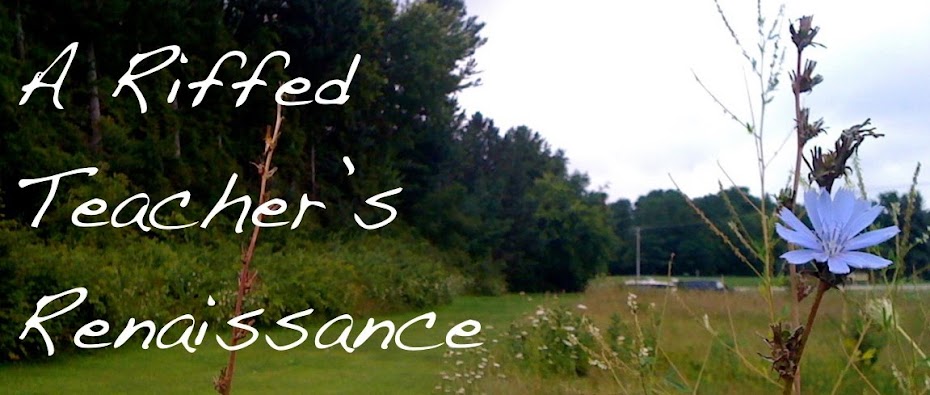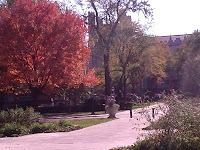About a year ago I noticed that a little lump, the size of a pea, had suddenly appeared on the right side of my back. Barely noticeable to the human eye, it blended in with my pale white skin, merely a shadow, perhaps, if someone made a concerted effort to spot it.
A while back, I showed it to my doctor during a routine check-up, and he assured me that it was nothing more than a lipoma, a benign cyst that was nothing that I should be worried about. He told me that unless it started to grow in size or alter its appearance in any way, there was absolutely no need for concern.
When it started growing in diameter, I thought to myself, “Maybe I should be concerned.” To make matters worse it also began to discolor, at which point I had become officially worried.
By the time I had mustered the courage to show it to my boyfriend, it had grown to the size of a mini muffin top, and the color was, well, I’ll leave it to the imagination.
My boyfriend agreed that it would have to be looked at. “You’re going to have to have it looked at,” he said, to which I replied, reminding him as if he wasn’t already keenly aware, “But I don’t have insurance.”
Ah, there’s the rub. Since I was laid off from my teaching position in June, I haven’t had any type of medical coverage. I was supposed to be able to continue the coverage I’d had through the school district but due to miscommunications and mailings that never arrived (as though my apartment exists in some celestial vortex), I lost that opportunity, leaving me uninsured and vulnerable to astronomical medical costs.
Upon showing the lump to my mother, as well as my sisters, they convinced me that despite my insurance situation I would have to get it looked at. “You’ve GOT to get that thing LOOKED at!” they insisted. So finally I did. I decided to go to a local clinic I’d been to on previous occasions when my primary physician was unavailable on short notice. I walked in, waited to be called, and then came the part I’d been dreading.
“So, Miss Smith, what will be your form of payment?” the receptionist/nurse asked politely.
“I’ll be paying with my debit card,” I said casually, my eyes looking everywhere but at her.
“Have you been here before?”
“Yes.”
“Is your insurance the same, then?” she inquired.
“Um, actually...” I mumbled. “Actually, I don’t have insurance right now because, well, see I was laid off...”
“I see,” she said without looking at me. “So you’re self pay.”
“I guess so,” I said. “Self pay.”
Self pay was a phrase I’d never heard before because I’ve never been without insurance, so as I spoke the words back to the lady behind the desk, the meaning started to reverberate. At first it sounded sort of empowering, as in, “I, mySELF, will PAY!” or “I can take care of mySELF by PAYing for this!” Yeah! Take that!
But the delusions of grandeur quickly disappeared the moment the nurse called the doctor over after he’d examined me. During his examination, he told me that the infection was pretty serious and that he would have to “get in there” to clean it out. When he told the nurse about the procedure he’d be performing, she stopped and looked befuddled, as though he’d instructed her to lube me up for a lobotomy.
“Um, Doctor,” she said, frantically. “Did you know she’s SELF pay.”
“Oh, “ the nice doctor said. “Well, then we won’t charge you full price for the procedure. But we can discuss that in my office.”
It seems to me that nurse/receptionist could have taken a cue from the nice doctor about something called CONFIDENTIALITY! But I digress. After the procedure was over, I was left with a delightfully excruciating pain surrounding the newly excavated archeological site that was my former mini muffin. When I got home, I could not bring myself to actually remove the bandage and look at it, but in my imagination that hole in my back was a real force to reckon with. Eventually, my fear morphed into obsession, to the point that I would contort my body to see in the mirror if the hole was still oozing anything gross.
When the day came that the hole in my back had stopped oozing whatever it was that had to be oozed, I composed a song with an accompanying happy dance to the tune of “There’s a Hole in the Bucket, Dear Liza.” My version went like this: “The hole in my back’s not oozing, not oozing, not oozing! The hole in my back’s not oozing, not oozing, no more, hey!” The “hey” was accentuated by a sideways kick rivaled only by a backwoods Rockette stage show. “Finally!” I thought to myself. “The hole in my back’s not oozing!”
And thus began the series of events that would begin to resemble one another in their level of inconvenience, their “you’ve got to be kidding factor,” and the common theme that ran through all of them: holes.
Allow me to elaborate. The other morning my significant other drove his car (our only car, currently) to work. He came home with news that one of the tires had gone flat, i.e. there was a hole in it.
Two nights ago, we were watching a South Park re-run in the living room when suddenly part of our ceiling fell through. Apparently, there was a toilet leak in the unit above us. Once again, a gaping hole had been carved from my life, leaving what looked like the slobbery maw of some mythical creature.
I wish I could say that after my ceiling collapsed I composed a silly tune so I’d be more inclined to laugh about it. But I didn’t. Every time I look up at the hole that hangs over my dining room table (since moved, of course), I ponder the ubiquitous presence of holes.
The biggest of these right now is the hole in my head. After a couple of weeks of coping with the fact that I haven’t found a teaching job, I still feel lost and very much afraid of what I’m going to do with myself. Add to that the issues of family relationships, and there’s a great big hole in my heart, to boot.
We spend our lives poking holes in our bodies for various reasons, sometimes voluntarily and sometimes not: Ear piercings, belly piercings, shots, major surgeries, minor procedures. Maybe the little voids we strive to fill are part of a cosmic plan to re-order the universe. Or perhaps you find this theory full of....holes?
In sports, the hole takes on a whole new meaning. In golf, the ultimate shot is a hole in one. In basketball, the ball is thrown into a bottomless basket or hole. Pool is a game that is played on a table dotted with dark, mysterious, velvet covered apertures called “pockets” which are really just holes into which balls are poked by a stick.
All this poking, piercing, and puncturing results in a variety of scenarios, everything from winning the game to staving off infection or being able to adorn our ears with diamond-studded dangles. We keep trying to fill them or plug them up to make something whole again. Whatever the result, the holes seem to remain, whether in our pool tables, our theories, or our hearts.












